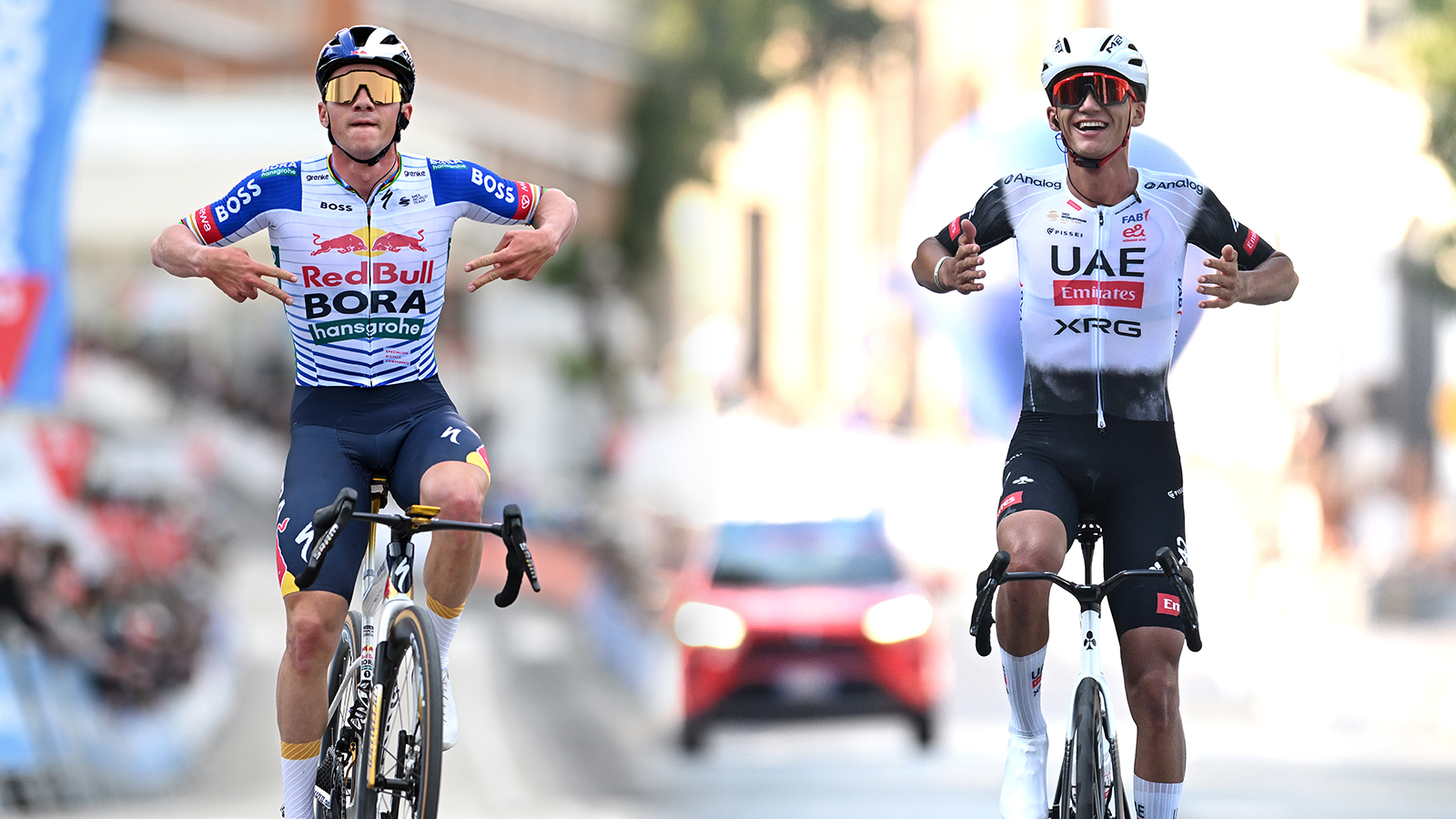Christine Majerus: A team leader can only be as good as her domestique (and vice versa)
Boels Dolmans road captain and super-domestique talks about what it's like to support the number-one team in the world
The latest race content, interviews, features, reviews and expert buying guides, direct to your inbox!
You are now subscribed
Your newsletter sign-up was successful
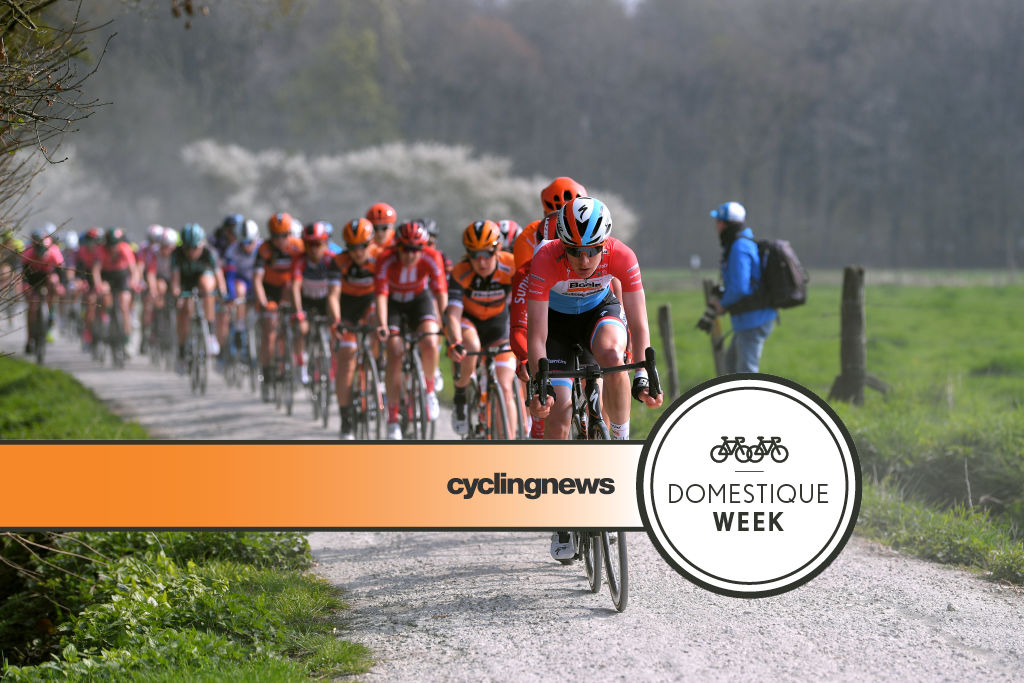
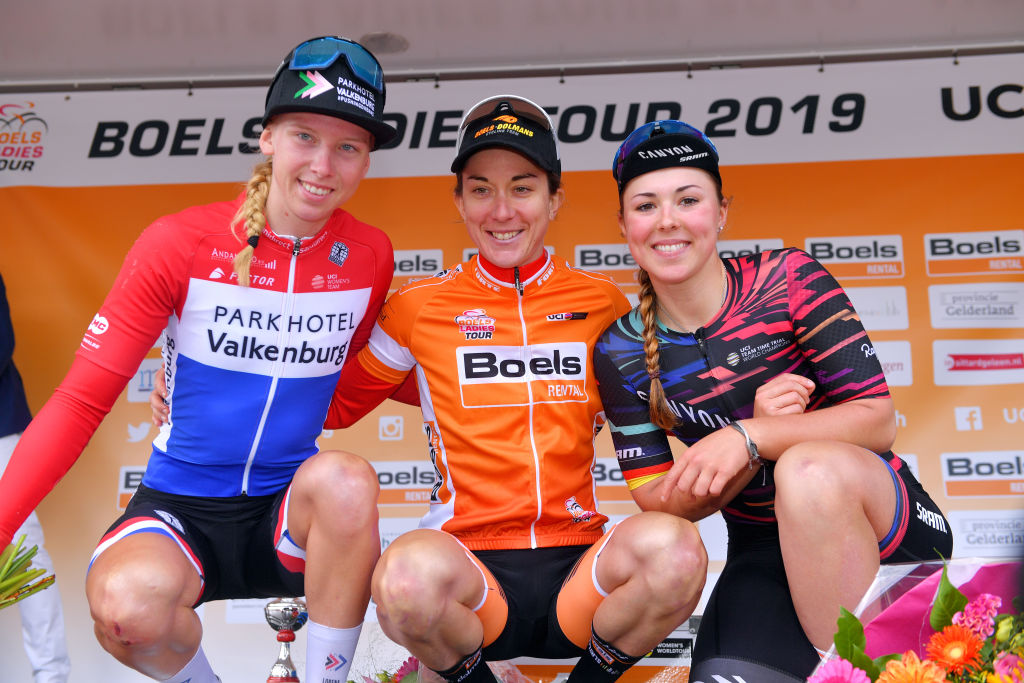
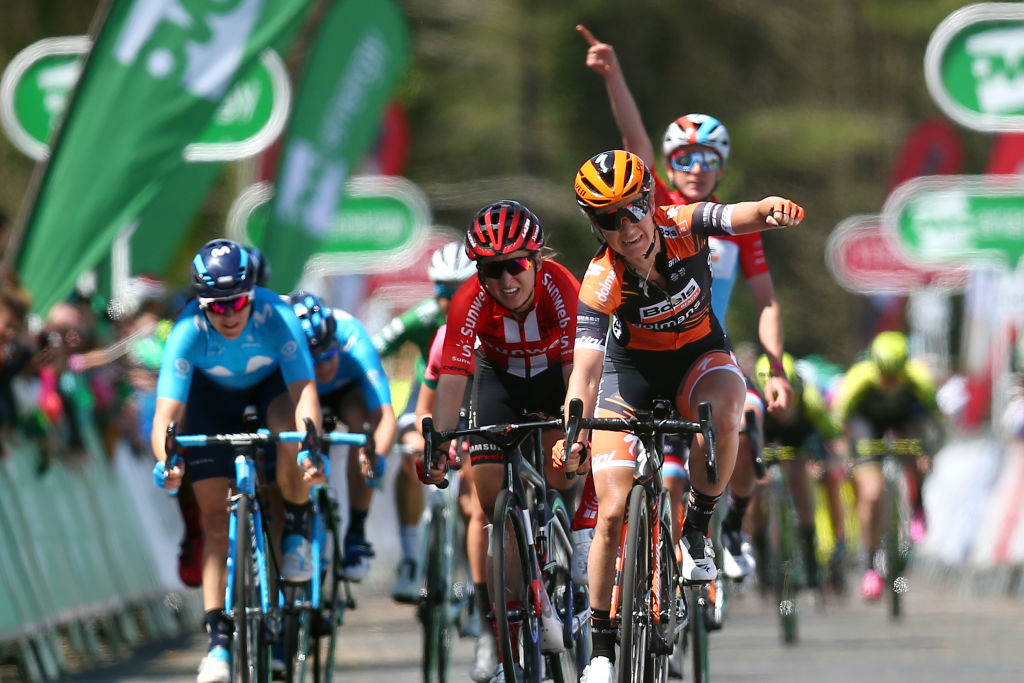
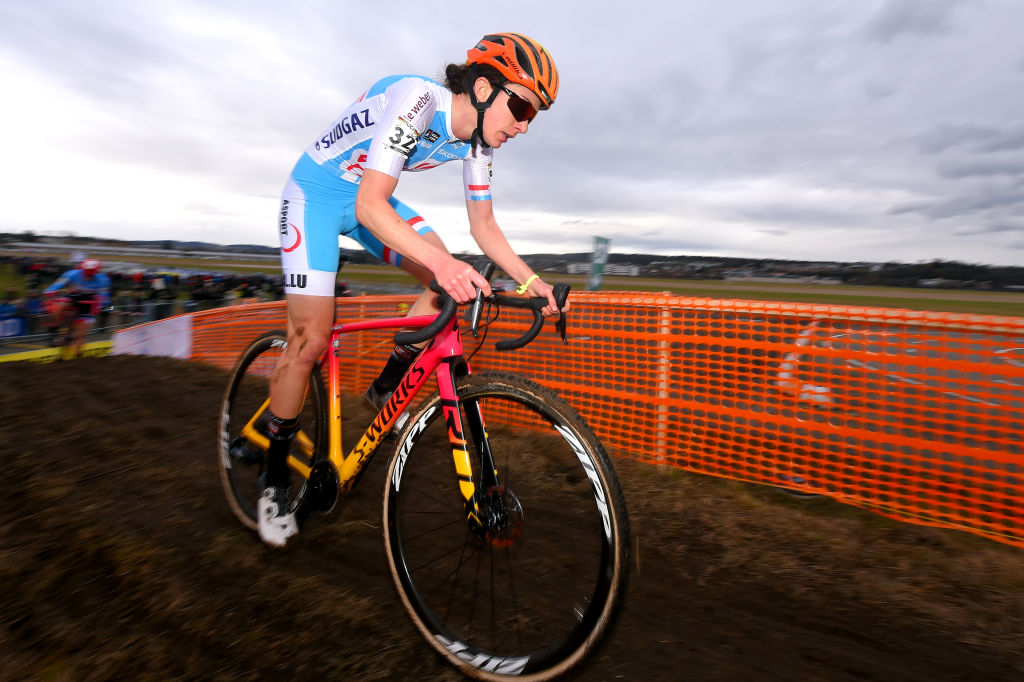
When we think of the best support riders in professional cycling today, we think of people like Deceuninck-QuickStep's Tim Declercq in the Classics, Roger Kluge (Lotto Soudal) in the sprints and Mitchelton-Scott's Mikel Nieve in the mountainous stage races. These are just a few of the names we read about in the media and the faces we see on television who are regularly fighting against the wind in acts of incredible sportsmanship and workmanship towards creating a team victory.
In women's cycling, we seldom get to watch these heroic sports figures in action simply because there is limited television coverage of races from start to finish. If we're lucky enough to watch the last few kilometres of a Women's WorldTour race, we would have missed the most crucial aspects of how a race developed and unfolded with these key players before the finish line.
If we take a closer look at the number-one-ranked women's team in the world – Boels Dolmans – we see a team of winners over the last six years, with former world champions like Lizzie Deignan, Amalie Dideriksen, Chantal Blaak and Anna van der Breggen – all names we know well for their prolific victories. But behind every one of those champions is Boels Dolmans' road captain and super-domestique Christine Majerus.
"I'm becoming all red – I can't even look at myself," says Majerus, blushing a deep crimson when told about how many of her colleagues think she's the best domestique in the sport.
"I've had the chance to ride for a lot of different leaders, and they have all given me recognition in return, which is nice, and I think it's also good motivation," she says. "Hearing people from different teams saying that I do a good job gives me good reason to keep on doing it.
"The truth is that this is the kind of work I do in many races all year round. People don't see it often because it isn't shown on TV. It's sad when people can't see the whole race, and sometimes only see the leaders [win], and not how things developed," continues Majerus. "But I don't do this to be shown on TV, and it's more important that my team and my teammates are happy with what I do.
"In the future, when our races are shown on TV [in full], people will think differently about the performances of the domestiques in the women's peloton."
The latest race content, interviews, features, reviews and expert buying guides, direct to your inbox!
Majerus is what some would call an eclectic, or highly versatile, support rider, and a winner in her own right when granted the opportunity.
She has often worked in the cobbled Classics and sprints for riders like Deignan [who now races for Trek-Segafredo], Amy Pieters or Jolien D'hoore, in the Ardennes Classics for Blaak and Van der Breggen, and helped Megan Guarnier [now retired] to victory at the Giro Rosa.

Even though Majerus spends day-in and day-out in a support role for her team, she also frequently features in the finales of races, which is what makes her such a valuable asset to Boels Dolmans.
"Physically, I think it's important to be able to be there well into the finale. It's not only about the first hour-and-a-half – it's about going into the last 20km. I think I've shown that I can be there in the final, and, if I know that I have to be a domestique, then I see my finish line as being the last 20km, and then my job is done," she says.
"Anyone who is physically capable of making it that far into a race could potentially be a domestique, but it's more about that last five per cent of dedication, which comes from your mind, which some have and some don't. It makes the difference between a good domestique and a perfect domestique."
It's not only about being physically capable of handling the race-long workload that makes a domestique special, either. It's also something of an innate personality trait to want to support others in their pursuit of victory. According to Majerus, this isn't the kind of job that every cyclist can do well.
"From a personality point of view, it's important to be a giver, to not have too big of an ego, and to be able to sacrifice yourself for somebody else," she says. "Not everyone has those qualities, and that's fine because every type of character needs to exist, but I think I'm more of a giver than a taker, and that has played well into my role as a domestique."
Becoming a road captain
Earlier in her career, Majerus raced for smaller UCI Women's Teams: GSD Gestion from 2008 to 2012, and then Sengers Ladies Team in 2013. She says that she hasn't always been a support rider; rather, it's a role she naturally slipped into when she joined Boels Dolmans in 2014.
"I haven't really thought about my role as a domestique, until everyone has been talking about it, but at the start of my career on smaller teams there wasn't this kind of role. Racing was more about everyone surviving to the line," she says.
"At that time, I was focused on myself. When I signed for Boels Dolmans, it was the first time that I was surrounded by riders who were way stronger than me. In those first years, it was clear that it was up to me to help the others, and not the other way around, just because I wasn't at the same level in the big events. I was pretty good at doing that, and I enjoyed it. It was very natural that I went more in that direction and that role on the team."
Majerus comes from Luxembourg, and is a 13-time national time trial champion and 10-time national road champion, who, on occasion, is granted the opportunity to race for herself at Boels Dolmans. In doing so, she has won two stages of the Women's Tour [of Britain], Dwars door de Westhoek, La Classique Morbihan twice and the overall title at the Boels Ladies Tour.
"I wouldn't only call myself [strictly] a domestique because when I have the chance to ride for myself, I think I can do pretty well," Majerus says. "But I can be put virtually everywhere and do well. I see myself more as a road captain than a domestique, and I'm not sure if everyone understands the difference between the two. I think that road captains have to consider tactical decisions, especially with no radios, and it's one of my strengths to be able to read a race as I have the experience."

Majerus points to other top domestiques in the sport that deserve praise for their commitment to supporting their team leaders. For the Classics, she highlights workhorses like Ellen Van Dijk (Trek-Segafredo), Romy Kasper (Parkhotel Valkenburg), Jessica Allen (Mitchelton-Scott) and Julia Soek (Sunweb).
She also gives shout-out to her teammate Amy Pieters as a strong lead-out rider in the sprints, and she names Amanda Spratt (Mitchelton-Scott) as one of the strongest road captain-domestiques in mountainous stage races, and then Tiffany Cromwell (Canyon-SRAM) as one of the most eclectic domestiques in the women's peloton.
She doesn't like to compare herself to her colleagues because she says all cyclists try to do the best jobs they can in the roles they are given on a team, but what makes her good at her role is the fact that she takes pride in riding for others.
"Of course, it's always easier when it works out, it's less frustrating," she says. "When we win as a team, it's also a victory for me, and that's satisfying. There are races during the year when the team gives me their trust and pays me back for the work I do, and that makes it easier for me to sacrifice myself for our team leaders during the rest of the season. At Boels Dolmans, we have always had that kind of culture, and that makes it easier to focus on my job as a domestique."
Majerus says that evolving into one of the best support riders in the world, and enjoying that role, has shaped her personality, and has also taught her life lessons.
"I think enjoying helping others is something that cycling has taught me. It's like a life lesson that I have learned in cycling: you can only win if everyone is doing their job and not looking out only for themselves instead of for the whole team.
"That's something that I've learned in cycling, and that has built my character over the last 10 years," she says. "Perhaps I wasn't conscious of it as a younger rider, or when I was a kid, but cycling has made me more aware of how things work in society and sport, and I feel good about being put in that domestique category. It's how we win as a team and in our normal lives."
Two kinds of bad days
Majerus says that the toughest part about being a domestique is when Boels Dolmans doesn't win the race, which, she says, thankfully doesn't happen too often. The team may have only had 18 wins in 2019, but in the three previous seasons they scored 38 wins in 2016, and 28 wins in both 2017 and 2018.
Despite securing fewer wins last year, they won where it counted at the Omloop Het Nieuwsblad, Flèche Wallonne, the Tour of California, the Boels Ladies Tour – won by Majerus – and the GP de Plouay, and in stages of the Emakumeen Bira, the Women's Tour and the Giro Rosa.
"It's hardest when we don't win. It's a two-sided feeling; on the one side you're happy with your work, but on the other side you're not happy for the team because, in the end, it didn't pay off. That's the hardest part to accept when things don't turn out the way they should have. But the most important thing is always to learn from your mistakes, whether they are yours or your teammates, and to try to do better at the next race," she says.

Majerus explains that the toughest race on the Women's WorldTour circuit for the domestiques is the Tour of Flanders. This year's race would have taken place this Sunday, April 5, but was cancelled due to health concerns amid the coronavirus pandemic.
It was 159km and included 10 hills and four cobbled sectors before finishing in Oudenaarde. She details the number of times she's ridden it in support of her team leaders all the way to the double climbs of the Oude Kwaremont and Paterberg before being left behind and then reabsorbed into the remnants of the peloton inside 30km to go.
"There are two kinds of bad days as a domestique," she says. "The first is when you're just having a really shit day yourself and can't do your work or what your team leader has requested, and maybe that's the reason you get a result that wasn't what everyone was expecting. That's pretty hard to take.
"The second is the kind of day when you're working really hard and then get to the final 20km and just get dropped. For example, when you get to the last 35km of the Tour of Flanders, it's still very hard to make it to the finish line. I've been dropped, cramped, and could barely make it. This is despite having a really good ride and having done really good work for the team. It's always hard when you find yourself in the gruppetto with cramps."
'It's easy to race for the top riders in the world'
The rewarding days outnumber the difficult days on Boels Dolmans, however, and Majerus acknowledges that being a support rider for the best team in the world is usually a satisfying experience. She says that one of her fondest memories is of helping Amy Pieters to victory at the 2018 Ronde van Drenthe, where they both featured in the final and Pieters went on to a breakaway victory.
"There are a lot of good days, because every time it works out and we win, then we're super happy," she says. "Being a domestique on our team is very rewarding because we have riders that can win most of the time. It's not easy, but it's easier to sacrifice yourself for someone who you have 100 per cent trust in because you know that they are physically good and capable of winning.
"It's easy to race for the top riders. I've always had the chance to ride for leaders that recognise my work, are happy with my work, and who say 'thank you'. I'd say that a team leader can only be as good as her domestique, and the other way around is true, too: a domestique can only be as good as her leader. You can't win if you don't have a team behind you. That's why I enjoy being in that role – even though some people think that being a domestique is a shit job."
Majerus adds that she has always felt valued in her role as a domestique at Boels Dolmans, by her teammates and within the sport. She says that of the team leaders that she's worked for over the years, such as Deignan, Guarnier, Blaak and Van der Breggen, she couldn't choose a favourite because they have all been professional.
"I think they have all been grateful for my work," she says. "I don't have any bad memories of my team leaders. I'm proud of having helped world champions, and it makes my job very rewarding. Some think that I might have had more results on my own, but they forget that being a domestique gives you a really good feeling if you get to ride for such champions.
"If I didn't feel valued for the work I do, then I wouldn't do it.," says Majerus. "I've always gotten kind words for what I've done. I've not ridden for the best team in the world for the last six years for no reason; it's the trust that they have given me that is rewarding."

Kirsten Frattini has been the Editor of Cyclingnews since December 2025, overseeing editorial operations and output across the brand and delivering quality, engaging content.
She manages global budgets, racing & events, production scheduling, and contributor commissions, collaborating across content sections and teams in the UK, Europe, North America, and Australia to ensure audience and subscription growth across the brand.
Kirsten has a background in Kinesiology and Health Science. She has been involved in cycling from the community and grassroots level to professional cycling's biggest races, reporting on the WorldTour, Spring Classics, Tours de France, World Championships and Olympic Games.
